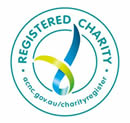AIFA - Allergy and Immunology Foundation of Australasia
AIFA 2025 grant round is now open
It is a pleasure to announce that Expressions of Interest (EOIs) are invited from ASCIA members for AIFA grants that support clinically important research into allergy and other immune diseases.
EOIs are due by midnight on 30 May 2025 and the EOI form is on the AIFA website:
www.allergyimmunology.org.au/grants
AIFA Research Grants 2024
Congratulations to the recipients of Allergy and Immunology Foundation of Australasia (AIFA) grants in 2024, who are listed on the AIFA website
Since 2014, AIFA has awarded over $794,000 in grants to support 40 allergy and immunology research projects, many of these to encourage early career researchers.
AIFA is now seeking donations and sponsorship to support more research projects. Donate to AIFA and make a difference - all donations go directly to fund AIFA research grants. Donate here
About AIFA
AIFA was established in 2013 by ASCIA with the aim to improve the health and care of people with allergy, immunodeficiency and other immune system disorders by funding medical research. These disorders are amongst the most important chronic diseases and public health issues in Australia and New Zealand, affecting around 25% of the population.
AIFA grant rounds open in April and are announced at the ASCIA Annual Conference in September. Expression of interest (EOI) forms are on the AIFA website www.allergyimmunology.org.au/grants
To be eligible for an AIFA grant the Chief Investigator must be an ASCIA member and the research needs to be carried out by the chief investigator and designated team in a non-profit institution in Australia or New Zealand.
Why support AIFA research grants in 2025?
- AIFA is the only charity in Australia and New Zealand which specifically funds allergy and immunology research, and is backed by ASCIA.
- Continued funding of research is vital for the prevention and treatment of allergy, immunodeficiency and other immune system disorders, and to ultimately find cures.
- AIFA research grants are awarded through a robust selection process by an independent and voluntary expert AIFA grant selection panel.
- Supporters of AIFA research grants can be assured that 100% of sponsorship and donations to AIFA directly fund research.
- AIFA recognises sponsors and donors, with donations of $100 perpetually acknowledged on the AIFA website https://www.allergyimmunology.org.au/our-supporters/donors
- Significant supporters of $10,000 or more are entitled to AIFA named grants.
AIFA named grant sponsors receive additional benefits:
- Association with ASCIA, the peak professional body for allergy and clinical immunology in Australia and New Zealand, as a supporter of medical research that aims to benefit people with allergy, immunodeficiency and other immune system disorders.
- Acknowledgement on the AIFA website and in communications from AIFA and ASCIA promoting the AIFA grants before and after the grants are awarded.
- Acknowledgement in the AIFA Research Symposium at the ASCIA Annual Conference, which has been held each year since 2021.
- The option to target research in specific clinical areas - allergy, immunodeficiency or autoimmunity.
AIFA research grants encourage:
- Collaborative research projects connecting networks in Australia and New Zealand.
- Emerging and new researchers through Early Career and New Researcher Grants.
- Innovative research that requires seed funding which can lead to future funding from the NHMRC, MRFF and other organisations.
- Projects that will translate to better treatment and care for patients with allergy, immunodeficiency and other immune system disorders.
AIFA and ASCIA are registered with the Australian Charities and Not-for-profits Commission (ACNC)
ABN 45 615 521 452
Donations to AIFA are tax deductible and can be made online at https://www.allergyimmunology.org.au/donate
To find out how you can support AIFA research grants in 2024-2025, please email
Content updated May 2025

